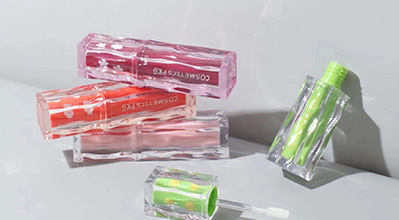Plastic Problems: Tackling Common Questions
Release time:
2025-08-23
Explore common questions about plastic, its uses, and how to effectively manage it in our lives.
Understanding Plastic: A Double-Edged Sword
Ah, plastic! The ubiquitous material that's both a marvel of modern engineering and a hefty environmental headache. From our shopping bags to the toys we give our kids, it's hard to escape the grip of this versatile substance. But with great power comes great responsibility, right? Let's dive into some common questions about plastic that many folks have but few actually ask.
1. What Exactly is Plastic?
In simple terms, plastic is a synthetic material made from polymers. These polymers are long chains of molecules, and they can be molded into a variety of shapes and forms. It's like playing with Play-Doh but on a massive industrial scale! Think of all the items around you—chances are, a good portion is made from plastic.
2. Why is Plastic So Popular?
Well, let's break it down: plastic is lightweight, durable, and incredibly versatile. You can find it in packaging, construction, electronics, and even medical devices. It's a go-to for countless industries. However, while it's a jack of all trades, it's also a master of pollution. That's where things get a bit sticky.
3. Can Plastic Be Recycled?
Absolutely, yes! But here's the kicker: not all plastic is created equal. Some types are easy-peasy to recycle, while others are a real pain in the neck. The recycling process itself can be complex, and many local facilities only accept certain types. So, when you toss that plastic bottle into the bin, make sure it's actually recyclable in your area. Check those numbers!
4. What Are the Environmental Impacts of Plastic?
You might want to sit down for this one. Plastic pollution is a significant issue worldwide. It doesn't break down easily, and marine life is often the first to suffer the consequences. Ever heard of the Great Pacific Garbage Patch? It's a massive floating island of plastic that's a real eye-opener. We've got to get our act together and reduce, reuse, and recycle, folks!
5. How Can I Reduce My Plastic Usage?
Here's the fun part! Cutting down on plastic doesn't have to feel like a chore. Start small—carry a reusable water bottle, bring your own bags when shopping, or choose products with less packaging. You'd be surprised how quickly these little changes can add up. And hey, it's not just good for the planet; it can also save you some bucks!
6. What About Biodegradable Plastics?
Oh, the buzz around biodegradable plastics! They sound great in theory, but there's a catch. These materials often require specific conditions to break down, which means simply tossing them in your compost bin at home might not do the trick. They can still contribute to pollution if not disposed of properly, so keep your eyes peeled for how to handle them correctly.
7. Is All Plastic Bad?
Not at all! While some plastics are downright villainous, others play a heroic role. Medical-grade plastics are crucial for sterile environments, and certain types are recyclable. The key is understanding which ones are harmful and finding alternatives when possible. It's all about balance and making informed choices.
Final Thoughts
In conclusion, navigating the world of plastic can be a bit of a maze, but it's worth the effort. By asking the right questions and making small changes, we can all contribute to a healthier planet. So, the next time you reach for that plastic bag, think twice! Together, we can tackle plastic pollution, one step at a time.





